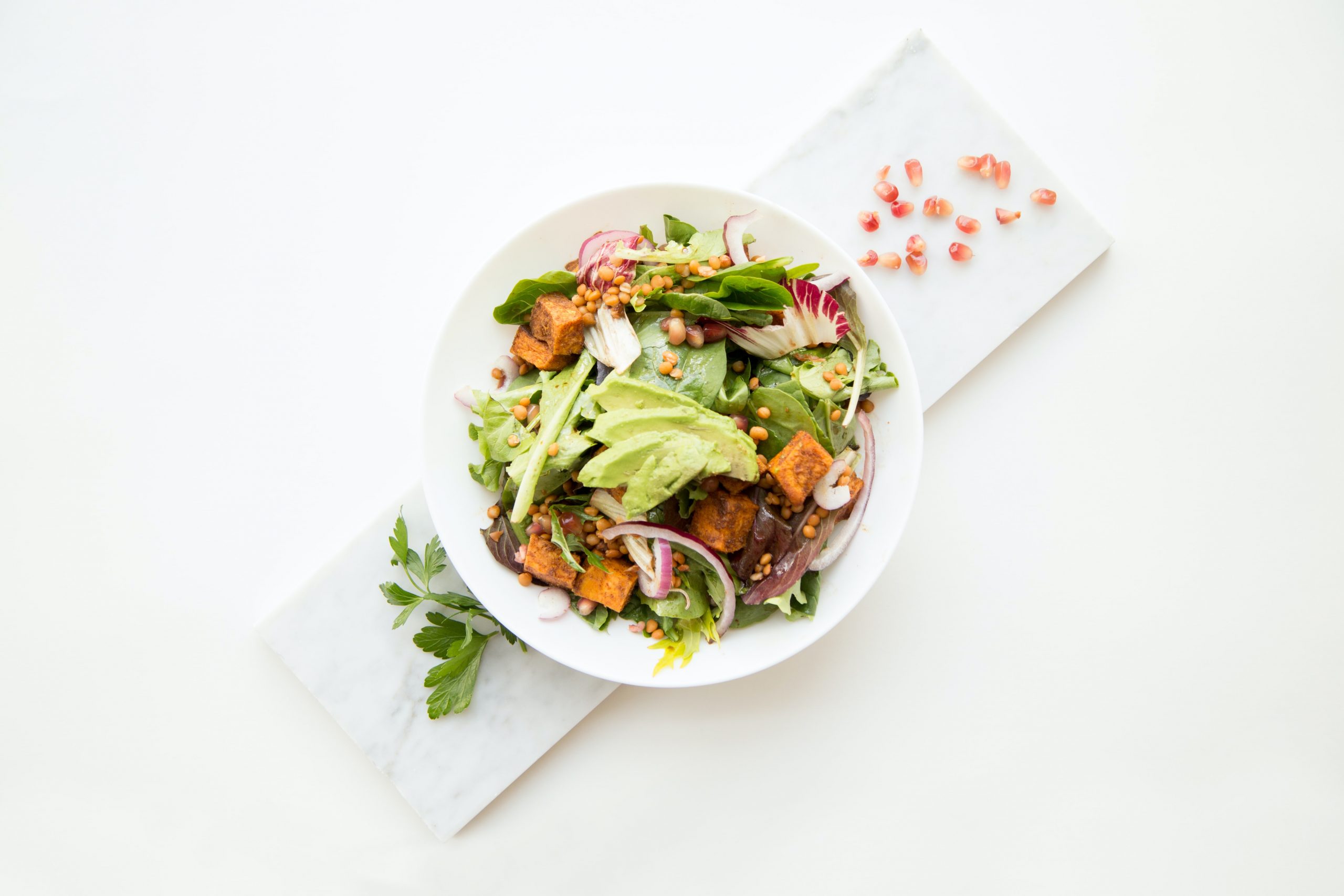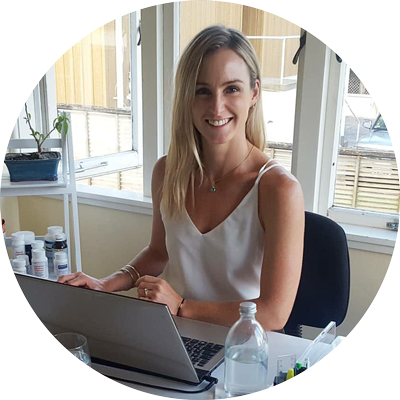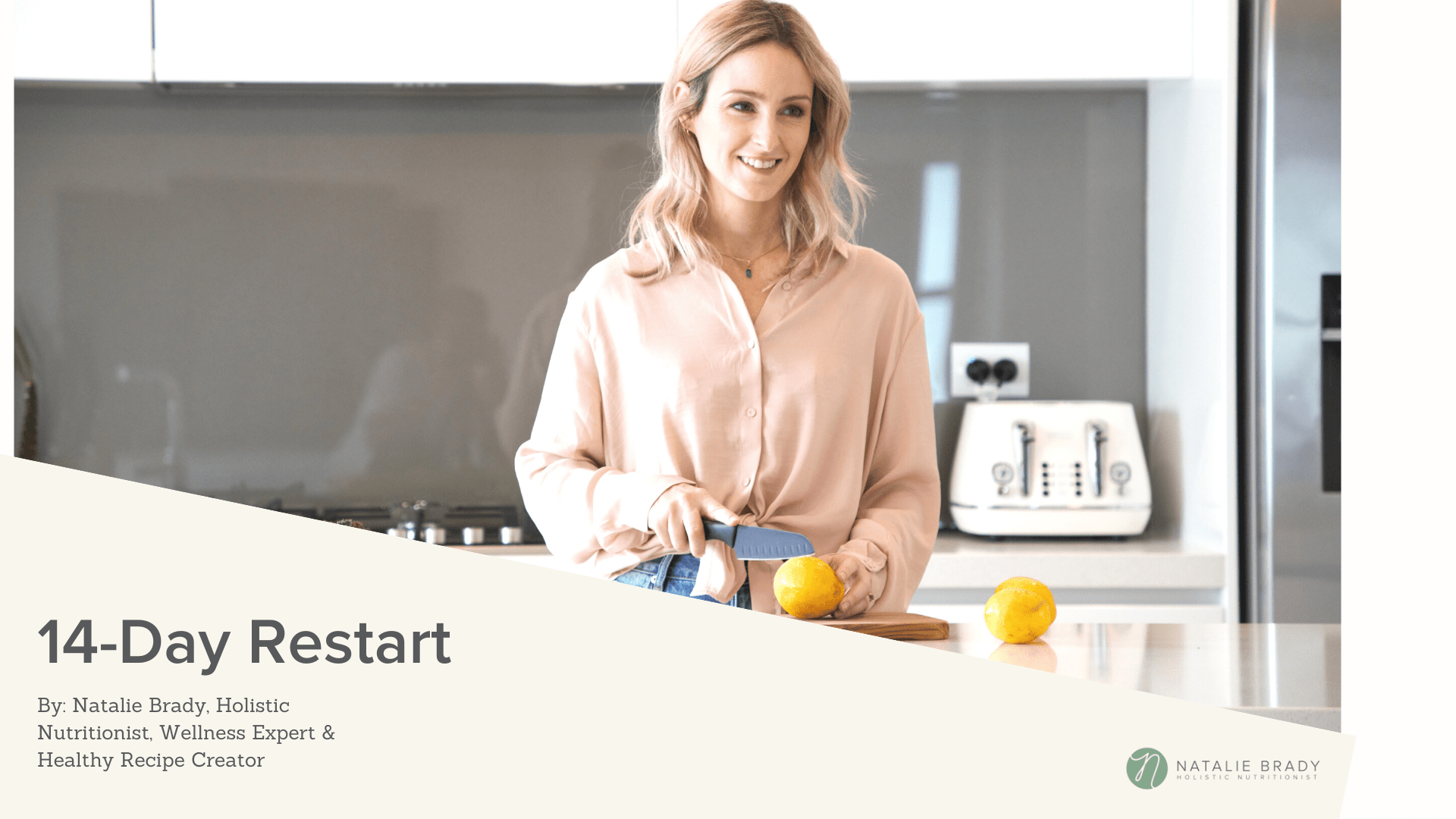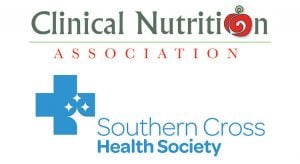Why You May Be Getting Bloated After A Healthy, “Clean” Meal

“I’m still bloated, I’ve cut out all sugar, dairy, gluten, wheat from my diet… now what”. Words I hear often in the clinic. When it comes to bloating there are so many things which can affect your digestive health and cause bloating or digestive discomfort.
When wanting to get to the root cause of your bloating it’s best to keep a food and symptoms diary for at least two weeks, writing down what you eat, when you eat, and when you experience bloating. This is very important as you might begin to identify what triggers you. You will likely need to provide this information to a qualified nutritionist or naturopath to really help you understand your digestive issues.
After years of struggling with IBS I know how uncomfortable bloating and digestive issues are, and how much they can affect your mood and overall wellness. It takes time to heal the digestive system and to get to the bottom of what your triggers are. This is one of the reasons why I have put together my Healthy Gut Guide workshop on Wednesday December 6th. I want to share with you my story, how I healed my IBS, and what you can do to heal your digestive system. This workshop will cover the following:
What we will cover:
- How does digestion work
- Leaky gut – what is it & 5 powerful ways to fix it
- Dietary advice – foods to avoid + foods to include
- How to beat the bloat
- How to improve reflux/indigestion
- Why you get constipated – how to avoid it
- How gut health affects sugar cravings, moods, your immune system, and skin health
- My story & what I did to heal my IBS
- Simple tips and tricks you can incorporate every day to support gut health
- Supplements to support gut health
- Gut-friendly meal plan ideas
What’s you’ll get:
- A set of notes detailing everything we talked about in the workshop
- Food & symptoms diary
- Gut-friendly meal plan ideas
- A bunch of gut-friendly recipes
- Easy to follow tips and tricks you can incorporate every day to support gut health (these will be useful over the Xmas/silly season!)
In the meantime, here are 5 things to take into consideration to reduce bloating and find out your trigger:
- You might be eating too fast and not chewing your food
Good digestion starts in the mouth. You must chew chew chew your food. Chewing food enables saliva to coat your food in enzymes which makes it easier for your stomach to digest. Without allowing for this first step in digestion to occur, bloating is often guaranteed. It can also lead to overeating, another common contributor to bloating. Eating too quickly can also cause you to swallow more air, worsening bloat.Tip: always sit down for your meal or snack, away from technology and work, be present with your food. Schedule in 20 minutes to allow yourself to have a lunch break, this is how long it should take to sit down and chew and enjoy your food. Aim to chew each mouthful 10-20 times. Put your knife and fork down between bites, and try to not skull water or liquids with your meal, as this dilutes those critical digestive enzymes needed for optimal digestion.
- You’re stressed and distracted
Stress puts your body into the sympathetic ‘fight or flight’ mode. When we are under stress, feeling emotional or distracted the digestive system is not at full capacity. This is because the body isn’t worried about digesting food, it’s busy doing other things that seem more pressing at the time. This often leads to under chewing or overeating, because you’re not being conscious within your meal time.Tip: Sit down, and take 5-10 slow deep breaths from your belly before commencing your meal. This helps reset your nervous system into the “rest and digest” mode. Start by inhaling for 4 counts, hold for 4 counts, and slowly release for 4 counts.
- Your liver is congested
One of the functions of the liver is to produce bile and bile salts necessary for digestion. Bile assists in helping the body to breakdown fats, as well as to absorb fat-soluble vitamins such as vitamin A, D, E and K. When the body isn’t producing enough bile and bile salts, digesting fats will become difficult. Acid production will increase in the stomach in order to assist in breaking down fats, and indigestion may occur.Tips: Try nurturing your liver through consuming things like bitter greens (dandelion greens, rocket, kale, silverbeet), raw apple cider vinegar, lemon juice, cruciferous vegetables (broccoli, cauliflower, cabbage, kale, brussels sprouts). You can also try drinking some liver-loving teas like dandelion root, nettle, milk thistle.
- You might have an underlying intolerance
You could be responding to a specific food which doesn’t agree with you or you aren’t reading food labels correctly and are accidentally consuming some of the usual culprits.Tip: Use a food symptoms diary to see if there is anything you may be reacting too, or consider an allergy/intolerance testing, consulting with a healthcare practitioner.
- Portion distortion
Maybe you just simply eat too much. Overeating often leads to digestive discomfort, especially if you are eating a variety of foods which require different enzymes to break them down.Tip: Eat until you’re 80% full. Slowing down and chewing your meal should help you to register when you’re full. Don’t forget to avoid large amounts of liquid with meals, this can be partially helpful, aim to drink liquids 20-30 minutes either side of a meal.
With these tips, you should be feeling lighter and more comfortable in no time!
If you’d love to know more about the digestive system and different ways to support optimal gut healthy come along to my Healthy Gut Guide workshop on December 6th. Please don’t hesitate to get in contact with me if you have any questions about it, or send me an email to [email protected] . I’d love to hear from you!
Nat x x

Hi I’m Natalie, a Registered Clinical Nutritionist, health influencer, blog writer & recipe creator. My own health complications prompted me to make positive diet & lifestyle changes, revitalize my health leading to a career change from the corporate world to nutritional medicine. I believe in a wholefoods approach to good health, focusing on simple strategies for modern, busy people.
Let's connect @nataliebradynutrition
The information on this website is not intended to replace the advice of your GP, a one on one relationship with a qualified health care professional and is not intended as medical advice. It is not intended for self-diagnosis, treat, cure, or prevent any disease. I encourage you to make your own health care decisions based upon research and in partnership with a qualified healthcare professional. The entire content of this website is based on the opinions of Natalie Brady, a qualified Holistic Nutritionist, unless otherwise noted. Click here for term and conditions of services.
Copyright © Natalie Brady Nutrition 2022 | Natalie Brady Nutrition Listed in Auckland's Top Nutritionists | Website by Fuel Media



